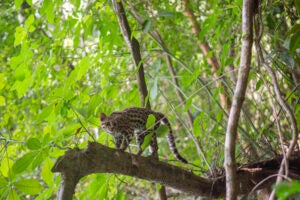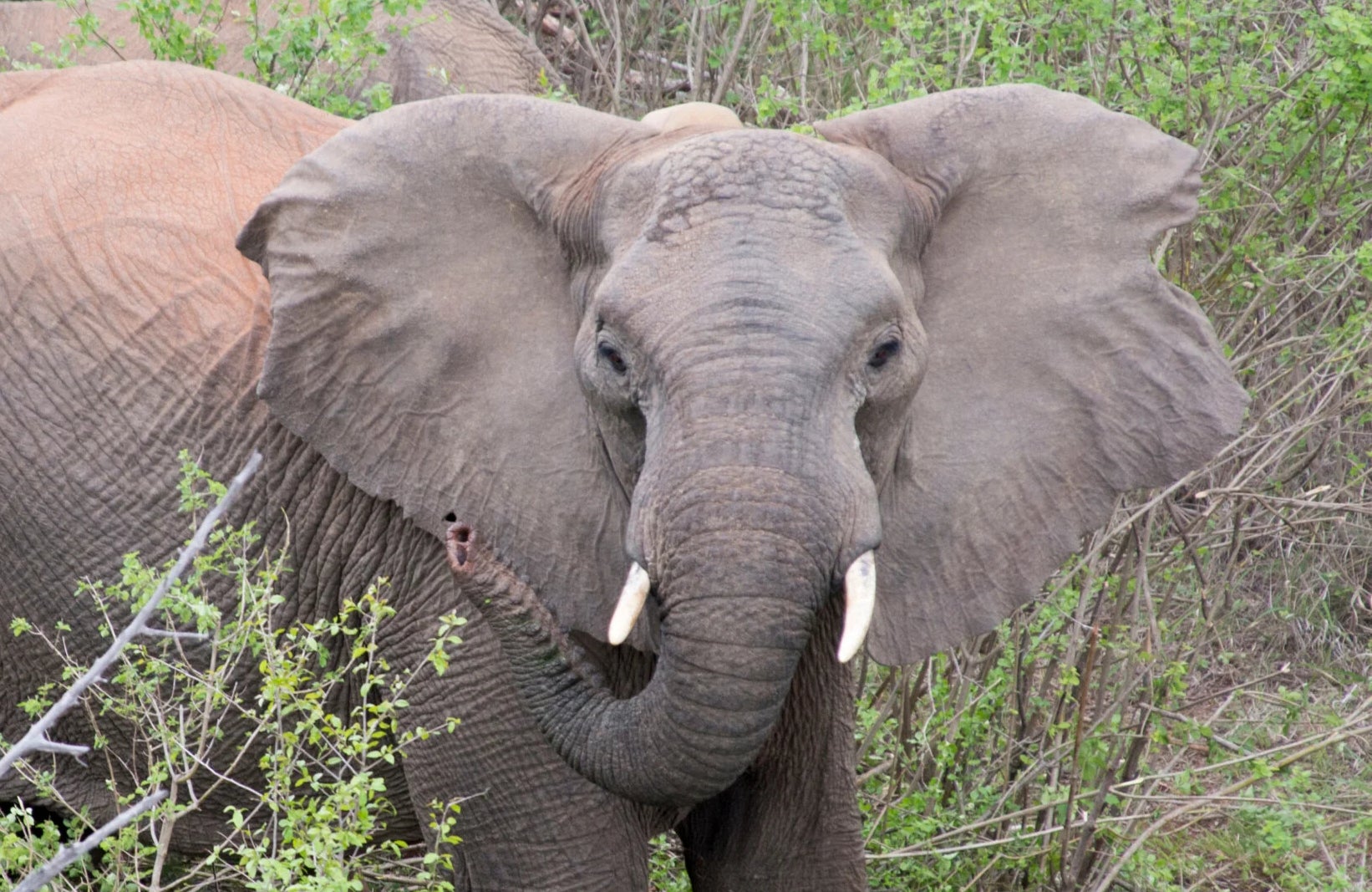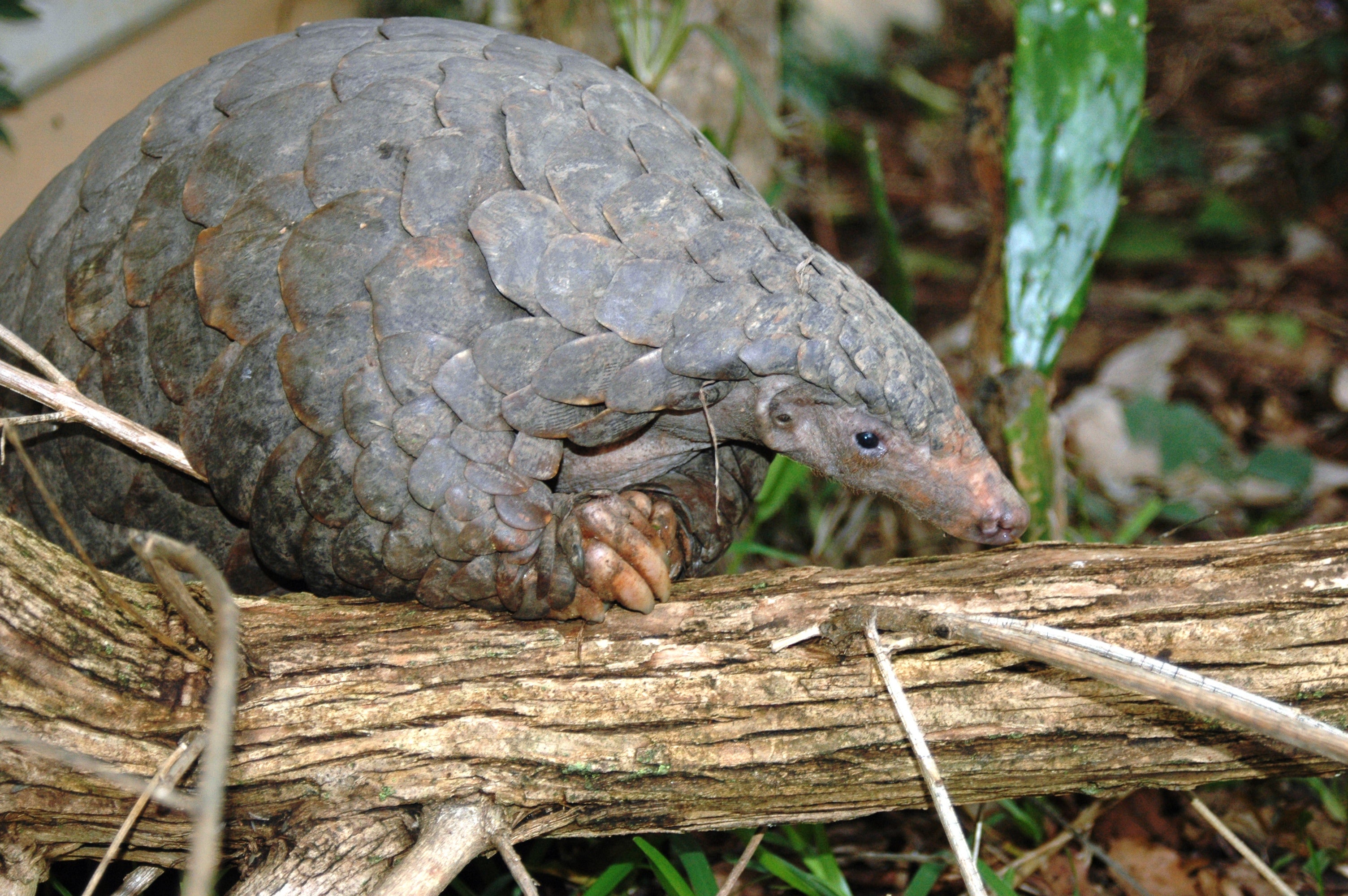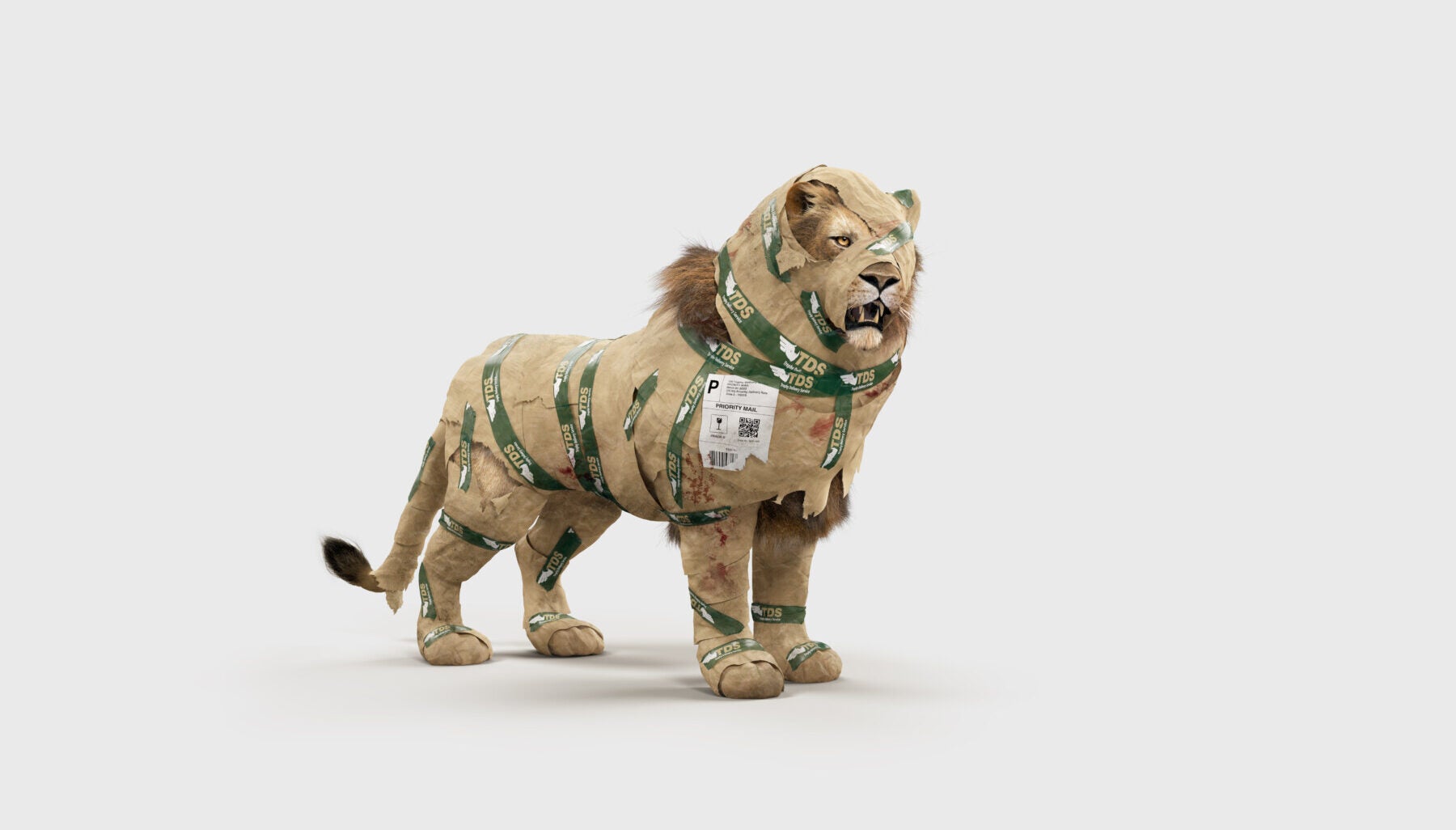
PETEN, Guatemala—When the rescue crate door was opened, the margay cat (Leopardus wiedii) took a glimpse of Yaxha Nakum Naranjo National Park, before jumping out and immediately climbing up a tree towards freedom. The small nocturnal wild cat had spent several weeks rehabilitating after being rescued from wildlife trafficking.
Along with the margay, 13 other wild animals were released on September 24th by non-governmental organizations Wildlife Rescue and Conservation Association (ARCAS) and Humane Society International/Latin America. These 14 animals were the latest release of 61 animals so far this year. The animals were donated, rescued or seized in different parts of the country, including the Izabal and Peten departments, and comprised:
- three spotted owls (Ciccaba virgata)
- three raccoons (Procyon lotor)
- three road hawks (Rupornis magnirostris)
- one margay (Leopardus wiedii)
- one royal toucan (Ramphastos sulfuratus)
- two hooded turtles (Kinosternum scorpioides)
- one snapping turtle (Chelydra serpentina)
ARCAS and HSI/Latin America have worked together since 2007 to protect wildlife in Guatemala, and this latest release. Following treatment, rehabilitation and quarantine at the ARCAS Wildlife Rescue Center in Peten, Guatemala, and having completed a pre-release veterinary assessment, the animals were released by the NGOs under the guidance of the National Council of Protected Areas.
This is the latest release of wild animals completed by ARCAS with the support of HSI /Latin America, which during 2021 has also included the release of 24 crocodiles (Crocodylus morelleti), six coyotes (Canis latrans), eight raccoons (Procyon lotor), five opossums (Didelphis marsupialis) and four coatis (Nasua narica).
The ARCAS Rescue Center has been working since 1991 developing physical, medical and ethological rehabilitation programs for the different species of animal who fall victim to illegal trafficking, so that they can be later released in the Mayan Biosphere Reserve.
Fernando Martinez, ARCAS director, said: “The Rescue Center’s mission is to strengthen existing wildlife populations, to prevent species extinction, and to have healthy populations capable of adapting and reproducing in the wild.”
Mauricio Mota, director of Humane Society International in Guatemala, believes the partnership between ARCAS and HSI/Latin America has been crucial to the success of releasing these animals. Mota said: “As habitats are under threat and human populations grow, we are seeing more and more encounters between people and wild animals, including exploitation and capture for illegal trafficking. That is why HSI is pleased to support ARCAS’ work to rehabilitate animals who have been rescued, seized or donated, to give them a second chance at a life of freedom in the wild. People should never buy these animals as pets, should not buy objects that contain animal parts, and should report any illegal activity related to wildlife to the authories.”
ENDS
Media Contact: Mauricio Mota: (502) 32438475



